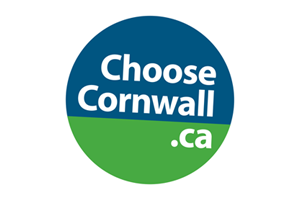Cornwall to Move to Orange Level in COVID-19 Response Framework
February 12, 2021
By Bob Peters
Cornwall Ontario — Cornwall will transitioning out of the shutdown and into a revised and strengthened Orange Level of the COVID-19 Response Framework (the “Framework”) on February 16.
“The health and safety of Ontarians remains our number one priority. While we are cautiously and gradually transitioning some regions out of shutdown, with the risk of new variants this is not a reopening or a return to normal,” said Christine Elliott, Deputy Premier and Minister of Health. “Until vaccines are widely available, It remains critical that all individuals and families continue to adhere to public health measures and stay home as much as possible to protect themselves, their loved ones and their communities.”
Based on a general improvement in trends of key indicators, including lower transmission of COVID-19, improving hospital capacity, and available public health capacity to conduct rapid case and contact management, the area governed by the Eastern Ontario Health Unit (of which Cornwall is part) will move back to the Framework on Tuesday, February 16, 2021 at 12:01 a.m. and will no longer be subject to the Stay-at-Home order. After returning to the Framework, the region will stay in this level for at least two weeks at which time, the government will assess the impact of public health and workplace safety measures to determine if the region should stay where it is or be moved to a different level. Public health regions will move up through the levels, if necessary, based on the set indicators and thresholds outlined in the Framework.
Here is a full list of Ontario’s public health region and the levels they will be at on February 16.
Grey-Lockdown:
- Niagara Region Public Health
Red-Control:
- Chatham-Kent Public Health;
- City of Hamilton Public Health Services;
- Durham Region Health Department;
- Halton Region Public Health;
- Middlesex-London Health Unit;
- Region of Waterloo Public Health and Emergency Services;
- Simcoe-Muskoka District Health Unit;
- Southwestern Public Health;
- Thunder Bay District Health Unit;
- Wellington-Dufferin Guelph Public Health; and
- Windsor-Essex County Health Unit.
Orange-Restrict:
- Brant County Health Unit;
- Eastern Ontario Health Unit;
- Haldimand-Norfolk Health Unit;
- Haliburton, Kawartha, Pine Ridge District Health Unit;
- Huron Perth Public Health;
- Lambton Public Health;
- Ottawa Public Health;
- Porcupine Health Unit; and
- Public Health Sudbury and Districts.
Yellow-Protect:
- Algoma Public Health;
- Grey Bruce Health Unit;
- Northwestern Health Unit; and
- Peterborough Public Health.
Green-Prevent:
- Leeds, Grenville and Lanark District Health Unit; and
- Timiskaming Health Unit.
The four remaining public health regions, Toronto Public Health, Peel Public Health, York Region Public Health and North Bay Parry Sound District, will remain in the shutdown, and the Stay-at-Home order and all existing public health and workplace safety measures will continue to apply to these four public health regions.
After returning to the Framework, public health regions will stay in their level for at least two weeks at which time, the government will assess the impact of public health and workplace safety measures to determine if the region should stay where they are or be moved to a different level. Public health regions will move up through the levels, if necessary, based on the set indicators and thresholds outlined in the Framework.
Visitor restrictions for long-term care homes will once again apply to those homes in the public health regions that are in the Orange-Restrict level or higher. In addition, long-term care homes must implement enhanced testing requirements.
Recognizing the risk posed by new variants to the province’s pandemic response, Ontario is introducing an “emergency brake” to allow the Chief Medical Officer of Health, in consultation with the local medical officer of health, to immediately advise moving a region into Grey-Lockdown to interrupt transmission. Local medical officers of health also have the ability to issue Section 22 orders under the Health Protection and Promotion Act, to target specific transmission risks in the community.
“While the trends in public health indicators are heading in the right direction, we still have work to do,” said Dr. David Williams, Chief Medical Officer of Health. “Everyone is strongly advised to continue staying at home, avoid social gatherings, only travel between regions for essential purposes, and limit close contacts to your household or those you live with.”
The Chief Medical Officer of Health will continue to consult with public health and other experts, review data, and provide advice to the government on the appropriate and effective measures that are needed to protect the health of Ontarians.
Quick Facts
- Find out what level and which regional public measures are in place for your area.
- On February 10, 2021, Hastings Prince Edward Public Health, Kingston, Frontenac and Lennox & Addington Public Health, and Renfrew County and District Health Unit moved to the Framework at the Green-Prevent level.
- To help stop the spread of COVID-19 and safeguard health system capacity, Ontarians are strongly urged to continue staying at home and limit trips outside their household and between other regions for essential reasons only, not to gather with individuals outside of their household, and to wear a face covering when within two metres distance of another individual who is not part of their household (both indoor and outdoor) or when required, with limited exceptions.
- Ontario has implemented a six-point plan to deal with the new variants of concern which includes mandatory on-arrival testing of international travelers, enhanced screening and sequencing, maintaining public health measures to keep people safe, strengthening case and contact management to track the spread of new cases, enhanced protections for vulnerable populations, and leveraging the latest data to inform public health decisions.
- To support the province’s economic recovery, the government has updated the Framework to allow for a safer approach to retail. Limited in-person shopping in Grey-Lockdown zones will be permitted with public health and safety measures, such as limiting capacity to 25 per cent in most retail settings.
- Digital tools have been an important part of the provincial response to COVID-19. To date, almost 6 million self-assessments have been completed using Ontario’s health screening tool to help Ontarians navigate their symptoms and decide on next steps. Now, revised and updated screening tools for workers/employees and customer/visitors will help keep Ontarians safe and healthy by pre-screening for symptoms before leaving for work or to visit a business as the province re-opens. The tools help workplaces and businesses meet screening requirements.
- To support the safe return of in-person learning, Ontario has introduced new measures to continue to protect students and staff against COVID-19 in the classroom.
Additional Resources
- Ontario Extending Stay-at-Home Order across Most of the Province to Save Lives.
- Find out about the latest public health measures, advice and restrictions.
- To find the right supports, visit COVID-19: Support for People, which has information about the many available and free mental health services and supports.
- Get tested if you have COVID-19 symptoms, or if you have been advised of exposure by your local public health unit or through the COVID Alert App. Visit Ontario.ca/covidtest to find the nearest testing location.
- Visit Ontario’s COVID-19 vaccine web page to view the latest provincial data and information on COVID-19 vaccines.
- Visit Ontario’s COVID-19 information website to learn more about how the province continues to protect the people of Ontario from the virus.
Business Reopening Toolkit
Cornwall Economic Development has put together a toolkit to help businesses reopen. The toolkit includes guidelines and a maximum occupancy calculator along with signs and posters that can be downloaded and printed:

We summarize the latest news about the impacts of COVID-19 on Cornwall businesses on a daily basis. Click on the following link to view:



